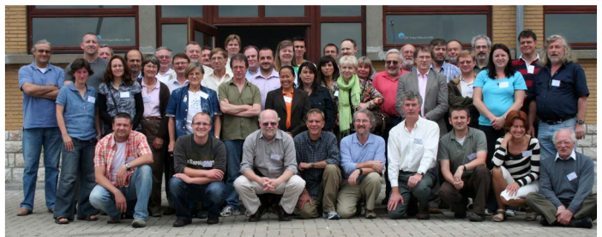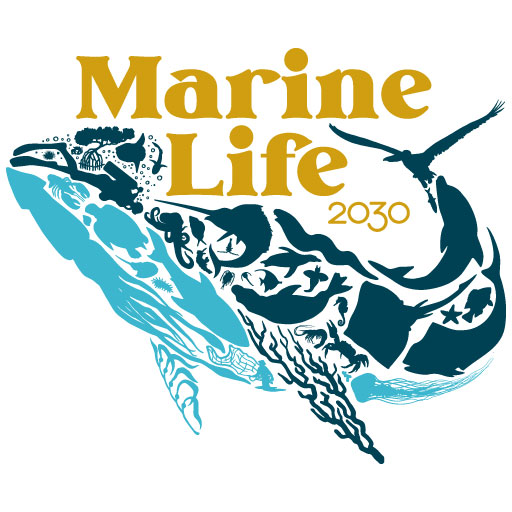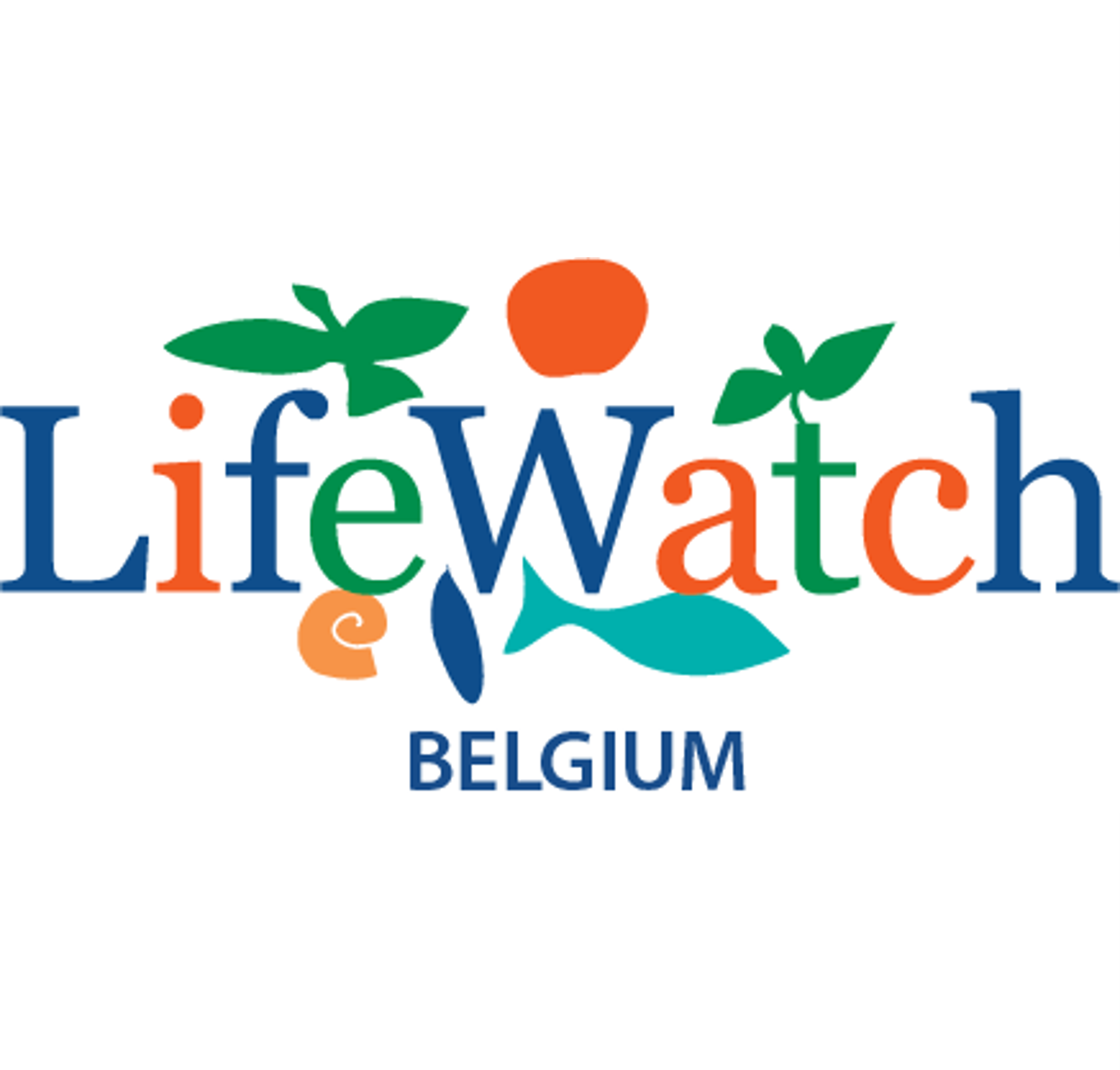Publication date: November 17th 2022

Did you know that today - November 17th - is World Philosophy Day? By celebrating this day every year on the third Thursday of November, UNESCO underlines the enduring value of philosophy for the development of human thought for each culture and for each individual.
As Aristotle is seen as one of the greatest philosophers of all time, and he is also regarded as “the father of marine biodiversity”, it seems only appropriate to launch the 15th anniversary celebrations of the World Register of Marine Species (WoRMS) today. How does philosophy link to WoRMS? A good knowledge of marine species and how to name them forms the basis of all marine biodiversity research, and this cannot be reached without human thought and reasoning.
From the very start, the vision and aim of WoRMS has been to provide an authoritative and comprehensive list of names of all marine organisms. While the first priority has always been to assemble a list of valid names for species, an equal effort has been put into including synonyms and other names in use. By adding all these names to WoRMS, as well as ensuring the correct linkage between different names, the World Register can truly serve as a guide to interpret the long history of taxonomic literature while doing its utmost to keep up with the very dynamic field of taxonomy and the changes in names over time.
Tremendous progress has been made over the last fifteen years, but WoRMS cannot yet be considered as complete. An enormous pool of experts is voluntarily supporting WoRMS to keep its content up-to-date with the latest literature on species descriptions, as well as adding a treasure-trove of extra information including type locality data, distributions, ecological information (so-called traits or attributes), images, and notes on any aspect of the species relevant to a user. Did you know that an average of 422 edits are made every day on WoRMS? This means that roughly every 3 minutes someone somewhere is making an addition or an improvement to the content of WoRMS!
Working towards completion, celebrating our 15th anniversary, and looking forward to many more years to come also means we can “dream wild”, make plans, and gradually work towards fulfilling these goals, which are very much linked to filling gaps and exploring new and innovative ways to keep up with the dynamic field of taxonomy and related disciplines and initiatives.
Over the next fifteen weeks, the WoRMS Data Management Team will launch weekly news items, showing you the ins and outs of this data system, its content, its data managers, users, and multitude of contributors. During this series, we will celebrate and thank all our editors who have made the start and growth of WoRMS possible, and who are also the driving force behind the continuation of WoRMS. They are the ones contributing their knowledge, expertise, and time on a voluntary basis, to make WoRMS what it is today: an authoritative classification and catalogue of marine names.
The birth of WoRMS (°2007)
Do you remember how WoRMS started 15 years ago? Back then, the need for an authoritative and global register of all marine species was recognised as urgent. The perception was that such a register would facilitate biological data management and data exchange and could also allow the integration of ecological and biodiversity data with non-biological ocean data, and it could assist taxonomists in their task of new species descriptions, revisions, and correcting past nomenclatural confusion. As the development of the digitally available European Register of Marine Species (ERMS) launched in 2004, it seemed like a rather small step to expand this endeavor into a full global register, and the first actions were undertaken , leading to the official launch of the World Register of Marine Species, in 2007.

First WoRMS marine taxonomy editor workshop March 2008 - at VLIZ, Ostend, Belgium. ©VLIZ
Over the past 15 years, WoRMS has contributed its database content and network expertise to many local, European and international projects, institutes, programs and initiatives. The vast network of users keeps growing, and many opportunities and collaborations have grown out of simple questions, thoughts and ideas exchanged over email or during (virtual) coffee breaks.
WoRMS within the UN Ocean Decade (2021-2030)
Last year, the United Nations launched the Decade of Ocean Science for Sustainable Development. The general vision of this Ocean Decade – “The science we need for the ocean we want” - implies we have excellent knowledge of what lives in the ocean. It is important to understand that all marine biological science, no matter how basic or advanced, is in some way linked to the core knowledge and correct usage of taxonomy. Because the core business of WoRMS is taxonomy, it has been recognised as an endorsed Ocean Decade Project Action, entitled ‘Above and Beyond – Completing the World Register of Marine Species, or ABC WoRMS (scientists love acronyms :-) ).
During the full span of the Ocean Decade, WoRMS will continue its endeavors to be able to provide a full and dynamic taxonomic overview of all marine life, thereby not only supporting scientists, but everyone who makes use of species names, including policy makers, industry and the public at large. Although already fairly complete, taxonomic gaps still need to be addressed, in both space and time and all newly described species (around 2000 per year) need to be entered. New challenges in the field of taxonomy, such as the increased use of so-called “temporary names”, need to be explored and included, thereby looking for the best suitable solutions for all WoRMS users.
As an Ocean Decade Project, WoRMS is already officially connected to the endorsed Action Programme Marine Life 2030: A Global Integrated Marine Biodiversity Information Management and Forecasting System for Sustainable Development and Conservation. Throughout the Ocean Decade, we believe that many more opportunities will arise for possible collaborations, all contributing to a better knowledge and deeper understanding of what lives in our oceans.
So this is, in a nutshell, how it all got started, and where the future is taking us. Over the next weeks, we will dive into several aspects of WoRMS and its underlying data infrastructure, Aphia.
References:
- WoRMS website
- WoRMS and Aristotle (2016 news series)
- Costello, M.J.; Bouchet, P.; Boxshall, G.; Fauchald, K.; Gordon, D.; Hoeksema, B.W.; Poore, G.C.B.; Van Soest, R.W.M.; Stöhr, S.; Walter, T.C.; Vanhoorne, B.; Decock, W.; Appeltans, W. (2013). Global coordination and standardisation in marine biodiversity through the World Register of Marine Species (WoRMS) and related databases. PLoS One 8(1): 20 pp. https://dx.doi.org/10.1371/journal.pone.0051629
- Vandepitte, L.; Vanhoorne, B.; Decock, W.; Dekeyzer, S.; Trias Verbeeck, A.; Bovit, L.; Hernandez, F.; Mees, J. (2015). How Aphia - the platform behind several online and taxonomically oriented databases - can serve both the taxonomic community and the field of biodiversity informatics. J. Mar. Sci. Eng. 3(4): 1448-1473. https://dx.doi.org/10.3390/jmse3041448
Contact
WoRMS Data Management Team - info@marinespecies.org
Acknowledgements:
This celebration and series of news messages initiated by the Data Management Team (DMT) would not have been possible without the collaboration of the WoRMS Steering Committee (SC) & voluntary contributions by many of the WoRMS editors.
The work of the DMT and many WoRMS-DMT-related activities are supported by LifeWatch Belgium, part of the E-Science European LifeWatch Infrastructure for Biodiversity and Ecosystem Research. LifeWatch is a distributed virtual laboratory, which is used for different aspects of biodiversity research. The Species Information Backbone of LifeWatch aims at bringing together taxonomic and species-related data and at filling the gaps in our knowledge. In addition, it gives support to taxonomic experts by providing them logistic and financial support for the organization of meetings and workshops related to expanding the content and enhancing the quality of taxonomic databases.
WoRMS – as ABC WoRMS – is an endorsed action under the UN Ocean Decade.



